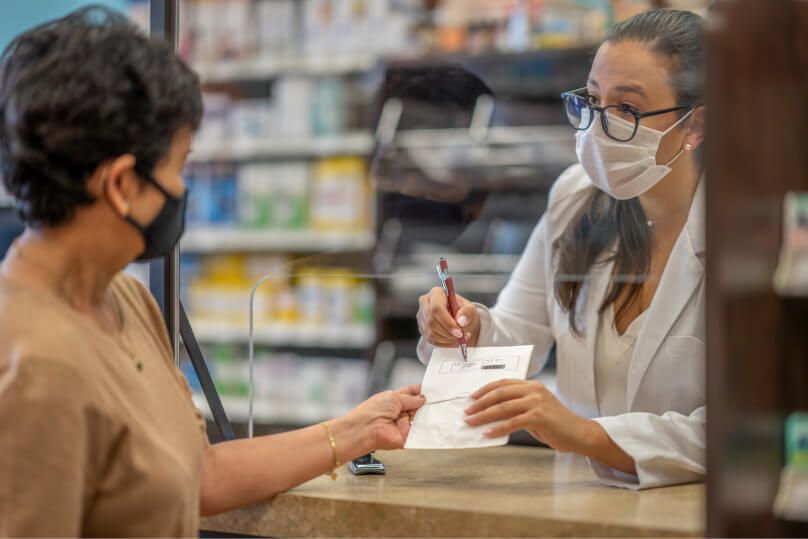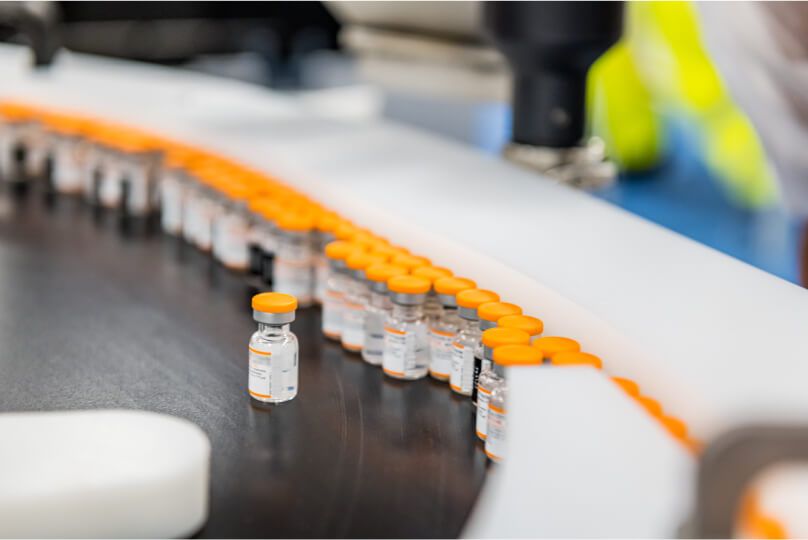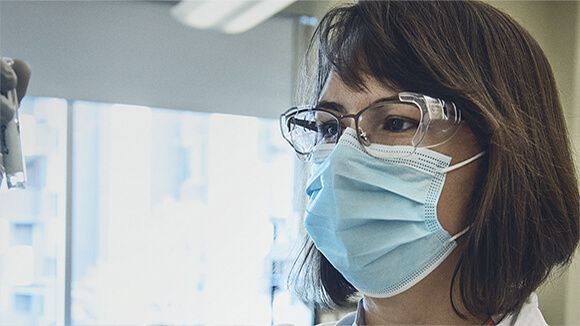Breakthroughs in the Fight Against Antimicrobial Resistance
The COVID–19 pandemic has been a stark reminder of the health and economic hardships caused by infectious diseases. It has also worsened drug-resistant infections and reinforced the need to invest in responsible antimicrobial use, diagnostics, surveillance, and research and development to help minimize the impact of future global health crises – like antimicrobial resistance (AMR).1,2
AMR is one of the biggest threats to global health today and can affect anyone, of any age, in any country. If it continues to rise unchecked, minor infections could become life- threatening, serious infections could become impossible to treat, and many routine medical procedures could become too risky to perform.3,4 Without action by governments, industry, and society, AMR is expected to cause 10 million deaths each year by 2050.4
As a global anti-infective leader, we’re committed to tackling AMR. Pfizer was proud to start the year ranked as a joint industry leader by the Access to Medicines Foundation AMR Benchmark report, which highlighted our innovative policies to improve access to our medicines and our leadership in antimicrobial stewardship.5
Good antimicrobial stewardship – a systematic, rational approach to the responsible use of antimicrobials – is foundational to help curb AMR.
Diagnostics can play an important role in stewardship practices and are an under-used resource. This year, Pfizer announced a collaboration with BD (Becton, Dickinson and Company) and Wellcome to better understand the role of diagnostics in advancing antimicrobial stewardship practices around the world.6
Antimicrobial surveillance – the monitoring of changes in populations of microbes to help understand patterns of resistance to anti-infectives – is critical for effective infection prevention. Access to such data allows key decision-makers to better adapt antimicrobial stewardship programs to help combat the spread of resistant pathogens.
In 2022 we led the way as a founding contributor to the non-profit Vivli’s AMR Register, sharing raw antimicrobial surveillance data from our pioneering Antimicrobial Testing Leadership and Surveillance (ATLAS) database.7 Vivli’s AMR Register will allow researchers, national governments, and multi-lateral organizations to access multiple industry datasets in one place to aid in identifying the emergence of new antimicrobial-resistant pathogens.

Antimicrobial surveillance – the monitoring of changes in populations of microbes to help understand patterns of resistance to anti-infectives – is critical for effective infection prevention.
A robust pipeline of new antimicrobials is essential to restoring the balance against increasing rates of AMR. However, significant economic hurdles have made research and development in this area a challenge. No novel class of antibiotics has been launched for almost 40 years, and even when newly approved treatments come to market, they may be used sparingly to support good antimicrobial stewardship practices – making it difficult to recover the high cost associated with development. New reimbursement models that more fully reflect the complete value of antimicrobials are critical.
We continued our leadership in finding creative solutions to address AMR in 2022 in a world-first cross-industry innovative reimbursement model for antimicrobials.
In June, Pfizer partnered with NHS England, NICE, and the UK Government on an innovative ‘subscription-type’ model for antibiotics.8 The model aims to move away from reimbursement based on number of prescriptions and instead focus on the value antibiotics bring to the public. This encourages the appropriate use of existing antibiotics and incentivizes the discovery of new ones—both crucial tools in our arsenal against AMR.
This pilot could help to inspire change on a global scale. It’s hoped that this model will set a precedent for governments across Europe and beyond to progress their own incentive and reimbursement models to attract much-needed investment in antimicrobial research and development.
- Pelfrene E, Botgros R, Cavaleri M. Antimicrobial multidrug resistance in the era of COVID-19: a forgotten plight? Antimicrob Resist Infect Control. 2021;10:21
- Yam ELY. COVID–19 will further exacerbate global antimicrobial resistance. J Travel Med. 2020;27:taaa098
- World Health Organization. Antibiotic resistance factsheet. July 2020. Available at: https://www.who.int/news-room/fact-sheets/detail/antibiotic-resistance
- Review on Antimicrobial Resistance. Tackling drug-resistant infections globally: final report and recommendations. May 2016. Available at: https://amr-review.org/sites/default/files/160525_Final%20paper_with%20cover.pdf
- Access to Medicine Foundation. Antimicrobial resistance benchmark 2021. Available at https://accesstomedicinefoundation.org/media/uploads/downloads/61ee760d03810_Antimicrobial%20Resistance%20Benchmark%20report%202021.pdf
- BD. BD, Pfizer, Wellcome Collaborate to Improve Global Hospital Antimicrobial Stewardship Practices. January 2022. Available at: https://news.bd.com/2022-01-11-BD,-Pfizer,-Wellcome-Collaborate-to-Improve-Global-Hospital-Antimicrobial-Stewardship-Practices
- Vivli. Groundbreaking Data-Sharing Initiative Launches to Increase Understanding of Antimicrobial Resistance. June 2022. Available at: https://amr.vivli.org/groundbreaking-data-sharing-initiative-launches-to-increase-understanding-of-antimicrobial-resistance/
- NHS England. NHS lands breakthrough in global battle against superbugs. June 2022. Available at: https://www.england.nhs.uk/2022/06/nhs-lands-breakthrough-in-global-battle-against-superbugs/#:~:text=The%20NHS%20is%20set%20to,of%20the%20NHS%20announced%20today.


